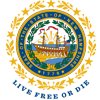Funding the NH Fish and Game Department
Information on Funding for the New Hampshire Fish and Game Department
Your license dollars help Fish and Game provide sportsmen's services, from the scientific management of our fish and game species to Hunter Education, boat access programs, and land conservation. We bring you the information you need to make the most of the resource -- regulation digests, fishing and hunting reports, website resources, and workshops to hone your skills on everything from fly-tying to turkey hunting.
Our Conservation Officers keep poaching at bay, promote and enforce snowmobile and OHRV safety, and are there to provide rescue services if you get hurt or lost in the woods.
We provide access and opportunity: Fish and Game owns 54,000 acres of land and has 19,000 acres under easement, all open to hunt and fish on. We own and maintain 143 boat ramps to provide access to the state's waters. Six Fish and Game hatcheries put nearly a million trout and salmon into our waters every year. We maintain 105 dams and operate fish ladders and an anadromous fish truck to move river herring up over dams to spawning areas.
The New Hampshire Fish and Game Department uses revenue from fishing and hunting license fees, federal funds, and other sources to accomplish its broad mission of conserving, managing, and protecting the state’s fish, wildlife, and marine resources and their habitats; informing and educating the public; and providing opportunities for people to use and appreciate these resources.
Through HB 212, the Fish and Game Executive Director and the NH Fish and Game Commission were given authority to set hunting and fishing license and permit fees.
Wildlife and Sportfish Restoration Program
The majority of federal grant funding received each year to support the Department’s mission comes from two long-term conservation programs. Collectively referred to as the Wildlife and Sport Fish Restoration (WSFR) programs, these platforms provide states and U.S. territories with dedicated, permanent funding for a wide variety of eligible fish and wildlife projects.
The Wildlife Restoration Program, also known as the Pittman-Robertson Act of 1937, provides funds from manufacturers’ excise taxes on ammunition, firearms, and archery equipment toward projects to restore, conserve, manage, and enhance wild birds and mammals and their habitats. Program funds can also support access for wildlife-related recreation, hunter education and development, and the construction and operation of target ranges.
The Sport Fish Restoration Program, also known as the Dingell-Johnson Act of 1950, provides funds to fish and wildlife agencies for both fresh and saltwater fisheries projects, boating access, and aquatic education. The revenue for this program comes from manufacturers’ excise taxes on sport fishing equipment, import duties on fishing tackle and pleasure boats, and the portion of the gasoline fuel tax attributable to small engines and motorboats.
Under Federal law, state participation in these programs requires that license fees paid by hunters and anglers be used solely for the administration of specified activities by the state fish and wildlife agency, and state’s must assent to this provision to receive these federal benefits.
All Citizens Benefit from NH Fish and Game Services
A strong commitment is needed from the public and the Legislature to keep the state's fish and wildlife agency strong and effective. The Department has made a big difference for New Hampshire's wildlife and wild places over the past 150 years.
Fish and Game has a broad mandate to conserve wildlife and wild places and provide other services for all New Hampshire citizens. Its budget sustains the full range of habitat and fish and wildlife management tasks, plus conservation education, law enforcement, search and rescue, assessing the impact of development projects on wildlife, and more. All of these functions are essential to ensure that the Department can effectively serve the wildlife and people of New Hampshire.
The inclusion of a small amount of General Funds in the Fish and Game budget is an important avenue through which the broader public that benefits from the Department's many services can contribute to its operation. Thanks for your support.




